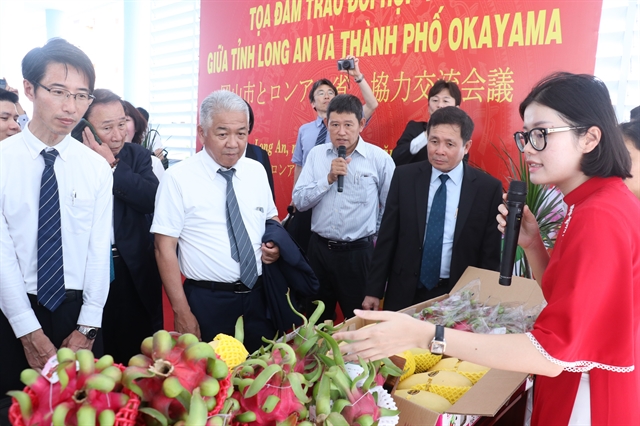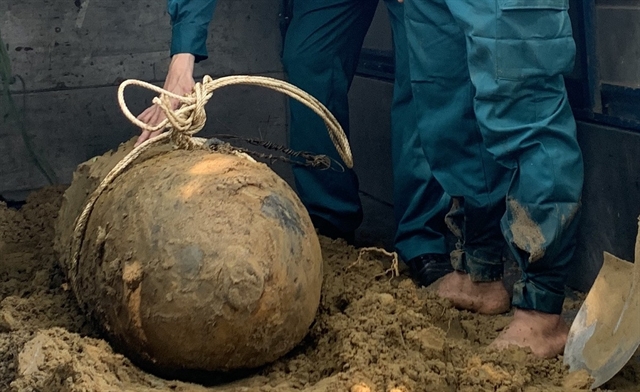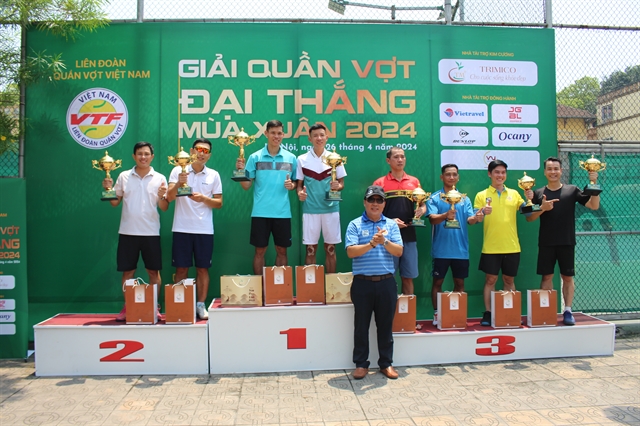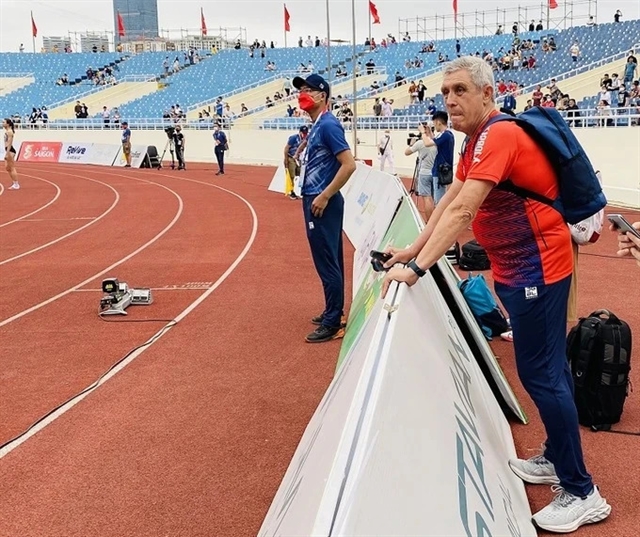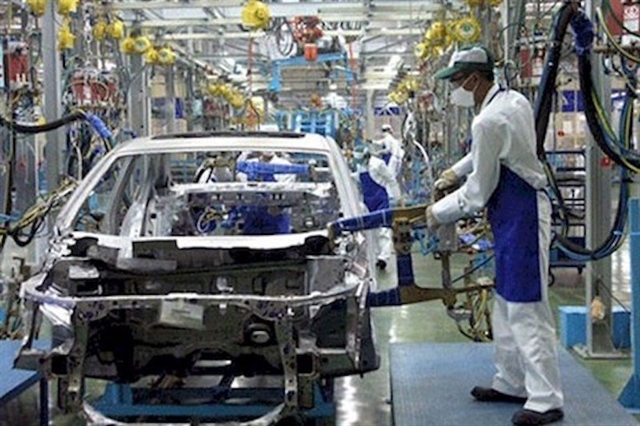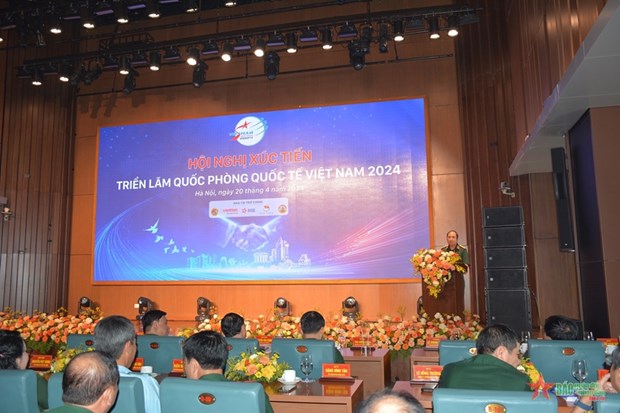 Features
Features
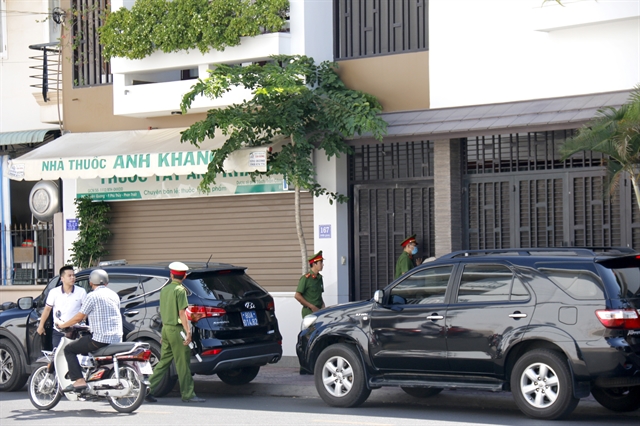
Scandals related to contaminated and unsafe food in recent years have become an issue of major public concern as consumers fear the health consequences. Bồ Xuân Hiệp reports.
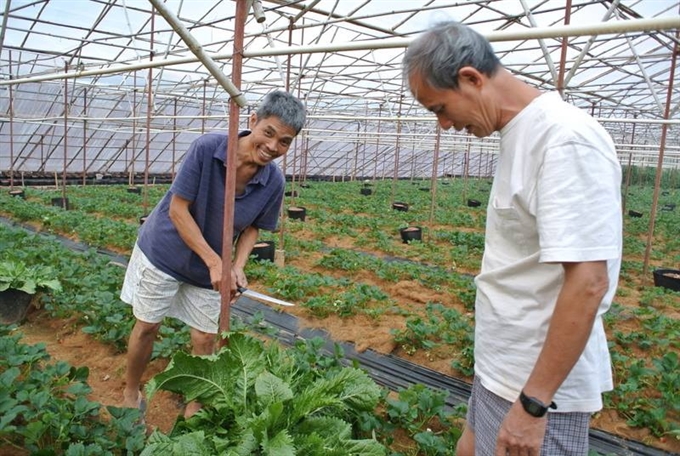 |
| Farm to table: An organic farm provides clean and safe vegetables for the HCM City market. VNS Photos courtesy of Khang Cường Agriculture. |
Scandals related to contaminated and unsafe food in recent years have become an issue of major public concern as consumers fear the health consequences. Bồ Xuân Hiệp reports.
Shopping at a supermarket last weekend, Nguyễn Thị Yến Nga of HCM City faced a wide array of food items, having no idea what was safe to eat.
Even though she had checked the labels about the origin of the products, she doubted that all of her purchases were “clean or safe”.
“I’ve heard the news on TV and newspapers as well as on Facebook about cattle fed with chemicals and greens sprayed with chemicals being sold at markets,” she said.
She and other residents across Việt Nam have become increasingly fearful about unsafe food sold at both traditional markets and supermarkets.
Recent reports indicate that unsafe food is believed to be one of the causes behind the higher cancer rate in recent years.
Experts have warned that unhealthy lifestyles, non-certified foods and overuse of banned substances in agriculture, as well as pollution, have contributed to the rise in the number of cancer cases.
Hoàng Thị Thuỳ Vân, 43, a resident of HCM City’s Bình Thạnh District, said: “Unsafe food seems to exist everywhere, and everything we eat can be toxic. It’s really scary.”
Vân said she kept lists of possibly unsafe food, including fruits and vegetables that contain high levels of pesticide residue, E.coli bacteria-infected drinks and chilli sauce with cancer-causing Rhodamine B.
“No one can guarantee that all food is safe because the long-term consequences of unsafe food may not be immediately apparent,” she said.
She said that consumers must take precautions, such as finding reliable food sellers, dining out less, or even growing vegetables at home.
Many residents are willing to pay more for products that are truly safe, but they can be hard to find.
One farmer recently interviewed, who wished to remain anonymous, said that many famers were over-using chemicals and pesticides in order to shorten the time for harvest.
He said the practice continued because “everyone else is doing it, and we want to be competitive”. However, many of the farmers refuse to eat their own produce, he added.
Đỗ Ngọc Chính, chief of the southern office of the Association for Standardisation and Consumer Production, said that a major problem was the use of antibiotics and lean-creating substances in livestock.
The lack of strict sanctions and fines has also made it tough for local authorities to tighten control over food safety violations, worsening the situation.
Homegrown produce
While waiting for stricter laws, people have been finding their own ways to survive.
Families in large cities like HCM City and Hà Nội are turning to safe food grown by their relatives or friends in rural provinces.
Vân, of Bình Thạnh District, for example, said she often bought vegetables and seafood transported from someone she knows in Hóc Môn District.
“My family switched to self-sourcing our daily food in the last two or three years,” she said.
She only buys seafood from fishing boats as soon as they come ashore, and meat from her brother’s slaughterhouse. When the supply of clean vegetables is insufficient, she will sometimes buy food from supermarkets.
Safe vegetables, fruits and other goods, including organic goods, are sometimes less visually appealing than those raised with pesticides.
Vân said that safe or organic vegetables and fruit were not consistent in size and shape, which drives some buyers away.
Some families in Hà Nội buy food from mountainous areas at much higher prices than the market price, travelling hundreds of kilometres to buy safe food directly from local farms.
A number of families have begun growing vegetables at their homes.
Vũ Ngọc Phát, 60, of HCM City’s Bình Thạnh District, said he planned to grow vegetables in boxes at his new house in Gò Vấp District.
Nguyễn Văn Đảm, 65, and his family in the city’s District 4 have just built a 350-square-metre wooden house in Củ Chi where he grows vegetables and fruits.
Another District 4 resident, Nguyễn Anh Đạt, 33, and his colleagues have set up Facebook groups to exchange information about homegrown foods.
Organic agriculture
Responding to the growing concern about safe food among consumers, VinEco, a food supply company under the real estate investor Vingroup, began selling safe vegetables last October, six months after Vingroup announced it would invest in the agricultural sector on a large scale.
VinEco is expected to supply 30 tonnes of 14 different types of vegetables per day, grown under GlobalGAP and VietGAP standards at its farms in Vĩnh Phúc Province, HCM City and Đồng Nai Province, all of which use Japanese technology.
Last August, VinEco built a 24.5-ha greenhouse in Vĩnh Phúc Province at a cost of $44.2 million.
The greenhouse, the country’s largest of its kind, is equipped with Israeli technology.
The facility can supply 3,500 tonnes of organic vegetables that meet VietGAP and other global standards. This is VinEco’s second greenhouse, after the first in Củ Chi.
Besides VinEco, many other large business groups in Việt Nam have also invested in producing safe agricultural products.
The Saigon Securities Trading Company is involved in rice and seafood production, while a subsidiary of the Hòa Phát Steel Group has invested in an animal feed factory.
In addition, the Hoàng Anh Gia Lai Group has invested in cow breeding and rubber plantations.
Mobile World, an electronics retailer in Việt Nam, is also planning to enter the fresh food and fast-moving consumer goods (FMCG) market.
Mobile World’s CEO, Nguyễn Đức Tài, said that demand was high for fresh food and clean agricultural products, but supply was still too low.
However, organic foods are often more expensive than food grown under traditional methods.
Nguyễn Thuỳ Dương, head of Export Import Trading of Khang Cường Agriculture Company, told Việt Nam News that organic food supply was limited compared to demand.
She said production costs for organic foods were higher due to greater labour input per unit of output.
Post-harvest handling of relatively small quantities of organic foods results in higher costs because of the mandatory segregation of organic and conventional produce, especially for processing and transportation, Dương said.
Government effort
Along with efforts made by consumers and farmers, local authorities are also outlining plans to promote clean produce.
HCM City recently approved a five-year plan for cultivation of organic and safe vegetables.
Under the programme, organic and safe vegetable farming areas in the city are expected to reach more than 16,000 hectares by 2020.
The city aims to have 90 per cent of farmers and others growing fruit and vegetables to meet VietGAP standards.
The city now has 91 communes cultivating vegetables in Củ Chi, Hóc Môn and Bình Chánh districts.
As of the end of last year, vegetable areas had reached 15,800 hectares, with average productivity of 375,000 tonnes a year, an increase of 19 per cent and 33.7 per cent, respectively, in comparison with 2011.
At least 721 organisations and individuals have gained VietGAP certification on a total of more than 2,000 hectares. The area has nearly doubled compared with the 2006-2010 period.
High demand has forced farmers to use better methods to produce quality products and a higher yield under VietGAP standards.
The city also plans to increase quality and productivity, and create close connections among partners in a safe food supply chain.
During the 2016-20 period, co-operatives taking part in the “organic and safe vegetable development programme” would receive VietGAP certification for production. Ninety per cent of their products are expected to be sold through order contracts.
In addition to this programme, two cultivation areas in a pilot project will use the latest technology before being applied to a wider area.
To reach the target, local authorities will also promote science and technology research, practical transfer and application, and improve state management of food hygiene.
In addition, ready-to-eat, washed tomatoes and lettuce grown without soil are expected to become a future farming model for other vegetables.
An IT-based agricultural project this year will grow high value-added vegetables, including medium-sized tomatoes and low-potassium leaf lettuce that will be the source of clean, ready-to-eat food.
The potassium content in this kind of lettuce is one-fifth of that contained in lettuce grown in ordinary ways, making it suitable for diabetics and others.
Role of media
Most people still lack knowledge about food safety, but the media has played an important role in raising awareness about the issue.
Early this month, the VTV24 News Centre of Việt Nam Television, for example, launched the TV programme “Say No to Unsafe Food”.
The programme will not only disclose the identity of unsafe food products and the names of producers who have committed violations, but will also have a hotline and social network page for consumers.
The TV show will also discuss the results of tests of popular foods and others suggested by viewers, and give clear and specific guidance on how to distinguish between safe and unsafe food.
In addition, the new Criminal Code approved by the National Assembly that will take effect on July 1 stipulates that the use of banned substances by individuals, organisations and enterprises in food production will be considered a crime.
Violators will either be fined up to VNĐ200 million ($8,958) or put in jail for up to 20 years. This is a major change from the previous Criminal Code, which did not set high standards, making it harder to prove violations.
Trần Tuấn Anh, Deputy Minister of Industry and Trade, said that preventing unsafe food was the chief mission of not only the media but also the entire society.
Việt Nam has about 200,000 new cases of cancers every year, with 75,000 deaths, one of the highest rates in the world, according to figures released at a seminar held recently in HCM City.
Dr Nguyễn Bá Đức, deputy chairman of the Việt Nam Cancer Association, said that unsafe food was a leading carcinogenic factor, accounting for some 35 per cent of cases in Việt Nam, while genetic factors accounted for only between 5 and 10 per cent.
Nga, 56, the shopper at the supermarket in HCM City’s Bình Thạnh District, said it was essential to have a trustworthy agency to test food before it is sold at markets.
“But we don’t know who or which agency to trust,” she said. “We have no choice. We must eat to survive.” VNS
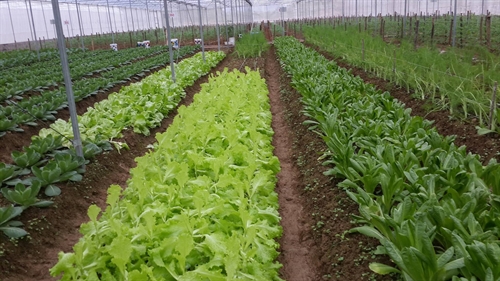 |
| Fresh foods: Vegetables are grown according to an organic agricultural model in the Cửu Long (Mekong) Delta. |
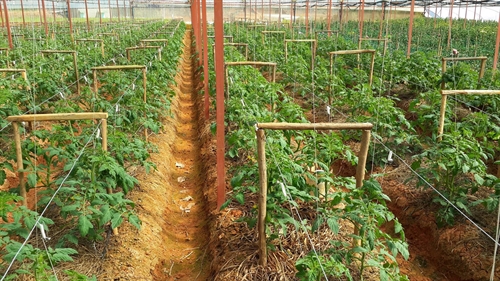 |
| Safe and clean: Vegetables are grown according to an organic agricultural model in the Cửu Long (Mekong) Delta. |
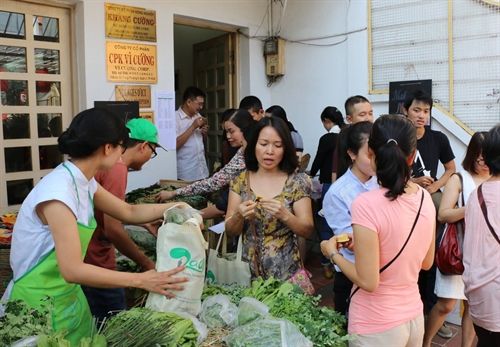 |
| Farmer’s market: Customers buy vegetables at a shop that sells organic vegetables in HCM City’s District 1. The shop opens only on Friday mornings. |
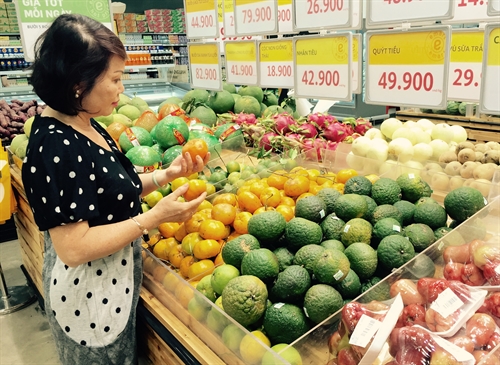 |
| Careful selection: Nguyễn Thị Yến Nga, 56, of HCM City’s Bình Thạnh District, chooses fruit at a supermarket in HCM City’s Gò Vấp District. VNS Photo Bồ Xuân Hiệp |

